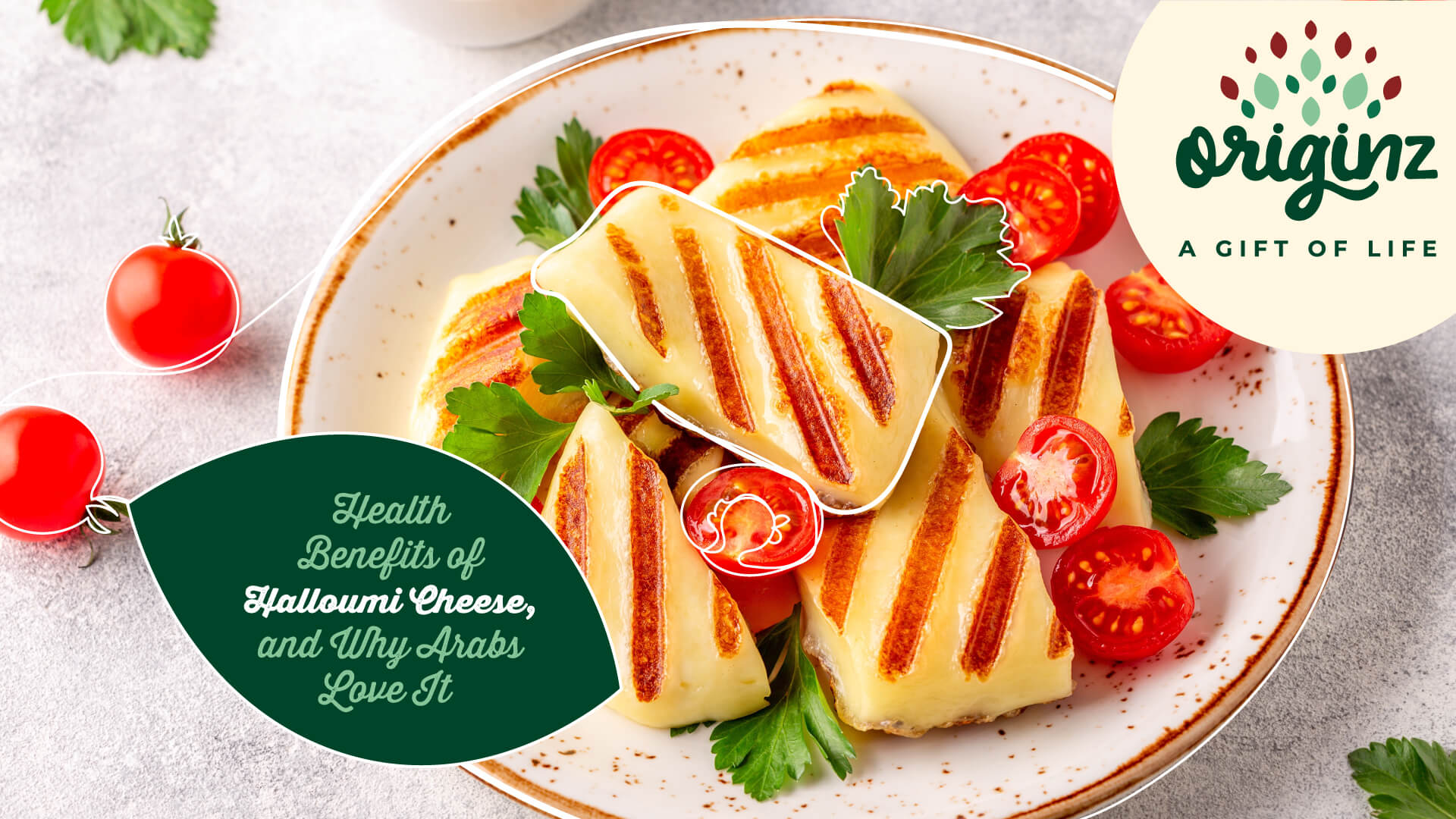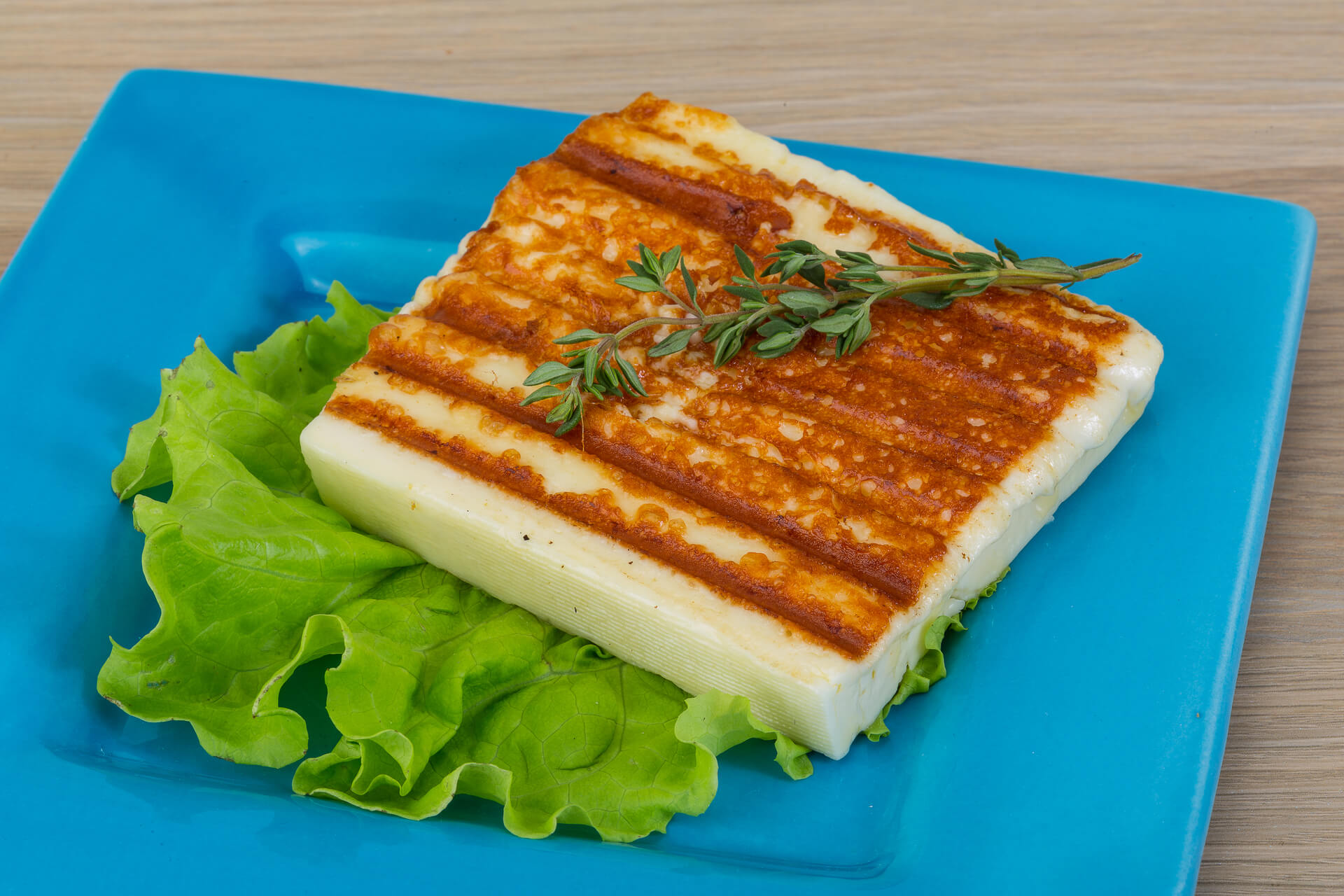
Health Benefits of Halloumi Cheese, and Why Arabs Love It
Halloumi cheese, a staple in Mediterranean and Middle Eastern cuisines, has been gaining popularity worldwide for its unique texture and flavour. Originating from Cyprus, this semi-hard, unripened cheese is traditionally made from a mixture of goat's and sheep's milk. Often grilled or fried, halloumi is cherished for its ability to retain its shape and develop a crispy exterior while remaining soft inside. But beyond its culinary appeal, halloumi offers numerous health benefits, making it a valuable addition to any diet. This article will explore the health benefits of halloumi cheese, its role in Arabic diets, and why it has become a beloved ingredient.
The Nutritional Profile of Halloumi Cheese
Halloumi cheese is not just a culinary delight but also a
powerhouse of nutrients. Rich in protein and calcium, it supports muscle health
and bone strength. A typical 100-gram serving of halloumi provides
approximately 22 grams of protein and 700 milligrams of calcium, making it an
excellent choice for those looking to boost their intake of these essential
nutrients.
Moreover, halloumi is a good source of vitamins A and B12,
which are crucial for maintaining healthy vision, immune function, and red
blood cell formation. The presence of zinc and magnesium further enhances its
nutritional profile, contributing to overall well-being.

Health Benefits of Halloumi Cheese
One of the significant health benefits of halloumi cheese
is its high protein content. Protein is vital for building and repairing
tissues, making enzymes and hormones, and supporting overall growth and
development. For vegetarians and those looking to reduce their meat
consumption, halloumi serves as an excellent alternative protein source.
Calcium, another essential nutrient found in halloumi,
plays a critical role in maintaining bone health and preventing osteoporosis.
Regular consumption of calcium-rich foods like halloumi can help ensure strong
bones and teeth, particularly important as we age.
Additionally, the health benefits of halloumi cheese extend to weight management. Due to its high protein content, halloumi can help increase feelings of fullness and reduce overall calorie intake, which can be beneficial for weight loss or maintenance. Including halloumi in balanced meals can support a healthy diet and contribute to better weight management outcomes.
Halloumi in Arabic Diets
Halloumi holds a special place in Arabic diets, often
featured in traditional dishes and enjoyed during meals with family and
friends. In Arabic cuisine, halloumi is frequently paired with fresh
vegetables, olives, and pita bread, creating a harmonious blend of flavours and
textures. Its versatility allows it to be used in a variety of dishes, from
salads and sandwiches to grilled kebabs and pastries.
The love for halloumi in Arabic diets can be attributed to
its unique taste and texture, as well as its nutritional benefits. The cheese's
ability to withstand high cooking temperatures makes it ideal for grilling, a
common cooking method in Middle Eastern cuisine. Grilled halloumi, with its
crispy exterior and soft interior, is a beloved component of many traditional
meals.
Why Arabs Love Halloumi
The popularity of halloumi in Arabic diets is not just
about its taste and texture. There are cultural and historical reasons behind
its widespread use. Halloumi has been produced and consumed in the Eastern
Mediterranean for centuries, and its presence in Arabic cuisine reflects a
deep-rooted culinary tradition.
Moreover, the nutritional benefits of halloumi cheese align
with the health-conscious approach of many traditional Arabic diets.
Emphasising fresh, natural ingredients, Arabic cuisine often incorporates
organic and wholesome foods. The inclusion of halloumi, whether in its
traditional form or as part of organic variants, fits perfectly into this
dietary philosophy.
For those seeking to explore healthy food products, halloumi offers a delicious and
nutritious option. Its rich nutrient profile and versatility in cooking make it
a valuable addition to any diet, whether enjoyed as part of traditional Arabic
dishes or integrated into modern, healthy recipes.
Enjoying Halloumi in Your Diet
If you're looking to incorporate halloumi into your diet,
there are plenty of ways to do so. From simple grilled halloumi slices served
with a fresh salad to more elaborate dishes like halloumi-stuffed peppers or
halloumi and vegetable skewers, the possibilities are endless. If you’re
looking for recipe ideas which you think might benefit from adding halloumi,
check out these delicious recipes from Originz!
FAQs
Is halloumi cheese suitable for vegetarians?
Yes, halloumi cheese is suitable for vegetarians as it is
made from a mixture of goat's and sheep's milk. It provides an excellent source
of protein for those who do not consume meat.
How can I include halloumi in a healthy diet?
Halloumi can be included in a healthy diet by incorporating
it into salads, sandwiches, and grilled dishes.
Where can I find high-quality halloumi cheese?
High-quality halloumi cheese can be found at most grocery
stores and specialty cheese shops. Look for brands that offer organic options
to ensure you are getting the best nutritional benefits of halloumi cheese.
Incorporating halloumi into your diet not only enhances
your meals with its unique flavour and texture but also provides numerous
health benefits. Whether enjoyed in traditional Arabic dishes or modern
recipes, halloumi cheese remains a beloved and nutritious choice for many.
Further Read,
·
How to
Make Chicken Shawarma At Home
Latest Blogs

Maintaining Healthy Habits After Ramadan
Have Ramadan healthy meals after Ramadan and maintain healthy food habits and implement them in your daily lives. Read more about healthy food habits.

Authentic Middle Eastern Iftar Meals to Prepare This Ramadan
Prepare some authentic middle eastern iftar meals this Ramadan. Look for fresh Ramadan food ideas and make your day memorable with these dishes. Check them out.

Ramadan Dishes to Cure Fasting Fatigue
Don’t worry about fasting fatigue anymore as we have listed some best Ramadan dishes and easy iftar meals to support your fasting journey. Check them out.

Eid-al-Fitr Feast: Delicious Recipes to Celebrate the End of Ramadan
Celebrate the end of Ramadan with delicious recipes on the eve of Eid ul Fitr. Read more about the traditional Ramadan recipes and make them easily.